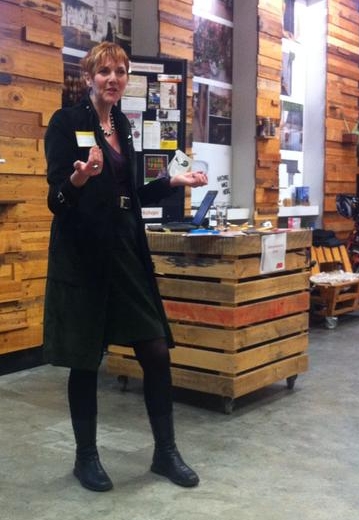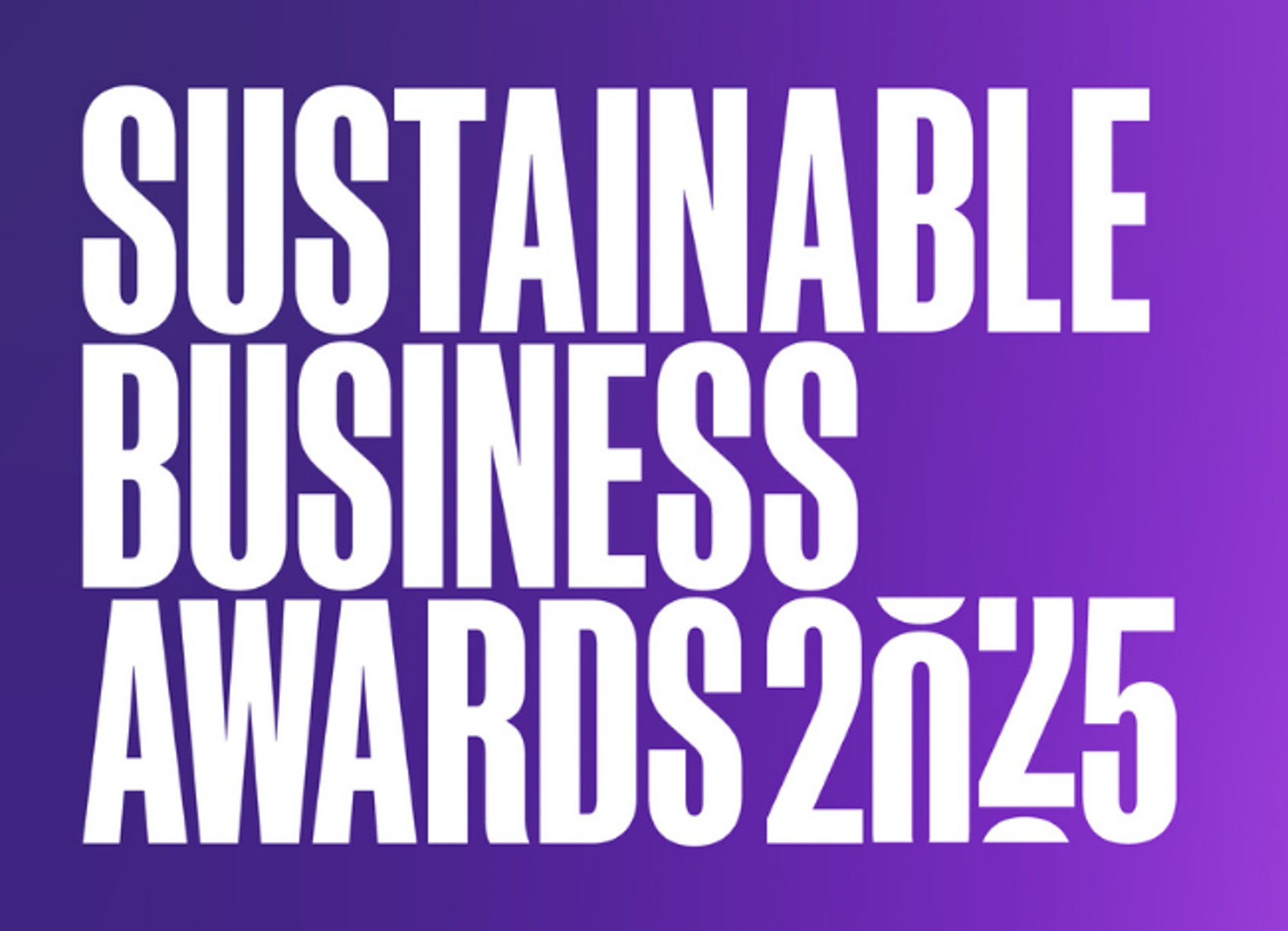If this heading read ‘Language is important’ it would have meant the same thing but taken more space and had less impact.
My 10-minute speaking slot in Wellington last week, to help launch this year’s SBN awards on telling good marketing stories, didn’t quite allow time for me to sing the praises of short words, so I’ll do it here instead.

Kath Dewar, speaking at The Sustainable Business event, Telling Good Stories hosted at The Sustainability Trust. Image credit: @NicolaYoung15
In marketing tech products, new services or sustainability initiatives, the temptation is to draw on complex words, in search of precision. The very word sustainability, with it’s abstract six syllables, can turn what should be fresh and life-saving into a yawn half-way through. Too often such words become a barrier; hard to hear, say, read or understand.
If we want our marketing stories to win over our hearts and minds and have folk share them for us, again and again, so our brands become legends, we must use words that count.
In the wise words of William Zinsser, author and former writing professor at Yale, who died in May:
“Short is better than long. Simple is good. Long Latin nouns are the enemy. Anglo-Saxon active verbs are your best friend. One thought per sentence.”
When we work with clients to forge key messages for brands or services, or to help them tell their green stories, we try to follow Zinsser’s rules. We try to use, as he says:
“Words that are in our bones, words that resonate with the oldest truths.”
In English, that is words like:
Home, child, chair, bread, milk, sea, earth, field, grass, road…
Compare the experience of reading these words above, to the ones below:
Residence, infant, recliner, comestible, bounding main, firmament, terra, enclosure, verdure, thoroughfare…
I exaggerate to make the point, but hope you see what I mean? The keenest readers will note I failed to find a synonym for milk – refreshingly I could find no technical name for it.
Why does short count more?
The simple ‘in our bones’ words have a power to make us feel. That power is story-telling gold. We need to make our audience feel something if they are going to care about our story, remember it or want to share it.
This isn’t an excuse to be woolly – facts are important characters in stories. See it instead as a call to be bold; find potent words to say what you mean, then put them to work for you.
Kath Dewar














